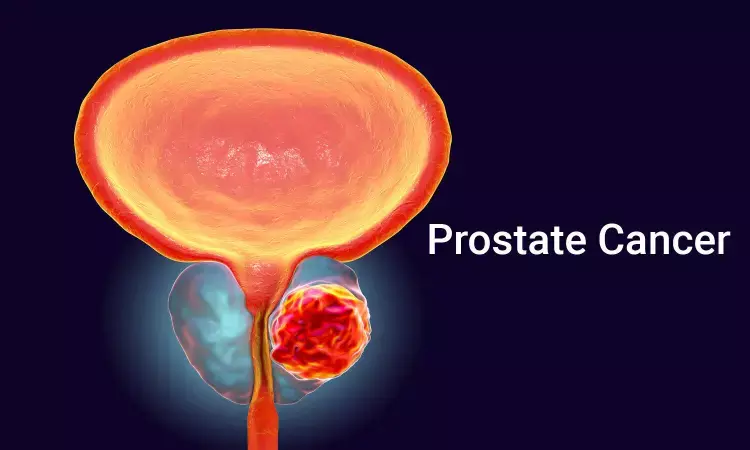- Home
- Medical news & Guidelines
- Anesthesiology
- Cardiology and CTVS
- Critical Care
- Dentistry
- Dermatology
- Diabetes and Endocrinology
- ENT
- Gastroenterology
- Medicine
- Nephrology
- Neurology
- Obstretics-Gynaecology
- Oncology
- Ophthalmology
- Orthopaedics
- Pediatrics-Neonatology
- Psychiatry
- Pulmonology
- Radiology
- Surgery
- Urology
- Laboratory Medicine
- Diet
- Nursing
- Paramedical
- Physiotherapy
- Health news
- Fact Check
- Bone Health Fact Check
- Brain Health Fact Check
- Cancer Related Fact Check
- Child Care Fact Check
- Dental and oral health fact check
- Diabetes and metabolic health fact check
- Diet and Nutrition Fact Check
- Eye and ENT Care Fact Check
- Fitness fact check
- Gut health fact check
- Heart health fact check
- Kidney health fact check
- Medical education fact check
- Men's health fact check
- Respiratory fact check
- Skin and hair care fact check
- Vaccine and Immunization fact check
- Women's health fact check
- AYUSH
- State News
- Andaman and Nicobar Islands
- Andhra Pradesh
- Arunachal Pradesh
- Assam
- Bihar
- Chandigarh
- Chattisgarh
- Dadra and Nagar Haveli
- Daman and Diu
- Delhi
- Goa
- Gujarat
- Haryana
- Himachal Pradesh
- Jammu & Kashmir
- Jharkhand
- Karnataka
- Kerala
- Ladakh
- Lakshadweep
- Madhya Pradesh
- Maharashtra
- Manipur
- Meghalaya
- Mizoram
- Nagaland
- Odisha
- Puducherry
- Punjab
- Rajasthan
- Sikkim
- Tamil Nadu
- Telangana
- Tripura
- Uttar Pradesh
- Uttrakhand
- West Bengal
- Medical Education
- Industry
Androgen deprivation therapy in men with prostate cancer reduces risk of thyroid diseases: Study

Taiwan: The use of androgen deprivation therapy (ADT) in men with metastatic prostate cancer (PCa) is tied to a reduced risk of thyroid disease development, says a recent study. The study was published in the Wiley journal Prostate.
Androgen hormones, such as testosterone are usually required by prostate cancer cells for their growth. Androgen deprivation therapy (ADT) reduces the levels of androgen hormones, with surgery or drug, to prevent the growth of prostate cancer cells. Androgen deprivation therapy also called androgen suppression therapy, is an antihormone therapy which is the major treatment for metastatic prostate cancer (PCa) but not much research has been done on the effects of ADT on thyroid diseases.
Against the above backgrdound, Jui-Ming Liu and colleagues conducted the population-based, nationwide cohort study with an objective to analyze the association between ADT and the development of thyroid diseases.
For this purpose, the researchers utilized the Taiwan National Health Insurance Research Database (NHIRD) with 17,192 PCa patients between 1997 and 2013. The association between ADT and the development of thyroid diseases was analyzed using Cox proportional hazards models and propensity score-matched analysis.
A total of 17,192 newly diagnosed men with PCa were selected from the NHIRD.
Based on the study, the researchers reported the following findings:
· There were 6200 ADT users and 6200 non-ADT users after 1:1 propensity score matching.
· There was a significantly decreased risk of thyroid diseases among ADT users compared with non-ADT users (adjusted hazard ratio (aHR): 0.79).
· Further analysis showed a significantly decreased risk of thyroid diseases with increasing ADT duration.
"Our findings showed that ADT use in men with PCa was associated with a decreased risk of thyroid disease development," the researchers concluded.
Reference:
Liu JM, Chen YT, Wu CT, Hsu WL, Hsu RJ. Androgen deprivation therapy for prostate cancer and the risk of thyroid diseases. Prostate. 2022 May;82(7):809-815. doi: 10.1002/pros.24323. Epub 2022 Feb 28. PMID: 35226371.
Dr Kamal Kant Kohli-MBBS, DTCD- a chest specialist with more than 30 years of practice and a flair for writing clinical articles, Dr Kamal Kant Kohli joined Medical Dialogues as a Chief Editor of Medical News. Besides writing articles, as an editor, he proofreads and verifies all the medical content published on Medical Dialogues including those coming from journals, studies,medical conferences,guidelines etc. Email: drkohli@medicaldialogues.in. Contact no. 011-43720751


